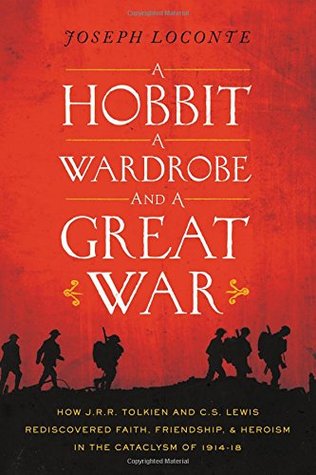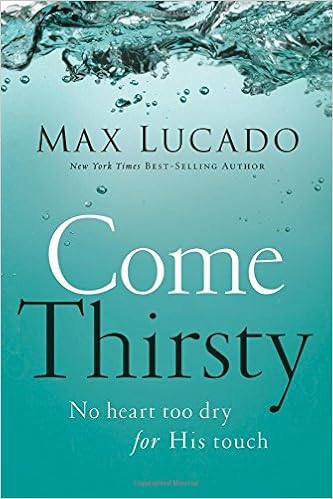From a sermon delivered on February 7, 2016 at Fellowship Bible Chapel in Fort Myers, Fl. Part of a study series on The Greatest Commandment. Browse mini-studies on this topic.
3 Questions
In Mark 12:13-34 we have three questions asked of the Lord Jesus. The first two were cold, calculated inquiries intended to trap Jesus in his words and give the religious leaders just cause to condemn him. The third was an honest inquiry. Notice that Christ offers a legitimate, lucid answer to every inquiry regardless of the intention behind it. The only difference is the benefit to the inquirer.
Paying Taxes
Mark 12:13-17
The Pharisees begin the questioning by asking if it is lawful to pay taxes to Caesar. What is interesting is the way they pose this question. They layer four compliments before finally getting around to the money question. The tactic they employ is known as an
argumentum ad superbiam—an appeal to pride.
The appeal to pride is common, you've probably heard it before or even used it. A few examples include:
"You are so good at doing the dishes, you should do them more often."
"You students are way too intelligent to believe some mystical being bothered to create this world, you should accept that an uncoordinated, unthinking big bang set the laws of nature into motion."
"This is the car for you, you look 10 years younger behind that steering wheel!"
It is fallacy to believe that an appeal to pride can take the place of fact when drawing a logical conclusion. Notice I did not say an appea to pride means to lie. These compliments may well be truthful (skill at dishwashing, a student's intelligence, how young one looks behind the wheel of a car) but they distract from the actual point of the argument. That's the intention.
The Pharisees did not lie about Jesus. Here are the things they said about him in verse 14:
- Jesus is the embodiment of Truth. He only said what is true and never omitted truth.
- Jesus is no respecter of persons. He had no problems calling out the religious leaders.
- Jesus is no respecter of persons. He comes to seek and save all who were lost.
- Jesus knew the Father in a way no one else ever could. He is one with God the Father.
However, the Pharisees' flattery was intended to cloud the issue and lure Jesus into making a grave mistake. They set up a platform where a politically charged, revolutionary statement was the easiest thing in the world to make. The problem is, Jesus' revolution was a spiritual one and not a worldly one. Jesus did not come into this world to overthrow the government. He came to obey the Father and establish his spiritual kingdom.
Jesus cuts through the flattery and gets at the core of the issue. In verse 15, the Pharisees try to cloud the issue even more by asking if it is lawful to pay taxes—Roman law is clear: pay taxes. Mosaic law was written for Israelites in a different time. There was no king ruling over Israel at the time. Jesus' response clarifies all of that by saying,
You are under both God and your Government. Respect both. In other words:
You are where you are because God has placed you there. Praise the Lord and pay your dues.
In the end, Jesus retains his focus and displays his testimony.
Afterlife Nuptuals
Mark 12:18-27
The Saducees take over the questioning with a theoretical story. They propose (pun intended) a scenario in which a man dies and leaves a widow with no child who is then taken, by Jewish law, as wife by his brother. The brother also dies without leaving an heir and this cycle repeats itself through seven brothers. The question then becomes:
In the resurrection, whose wife will she be?
It is can be quickly deduced that this line of question follows the fallacy of
reductio ad absurdum—it is a reduction to absurdity. It follows the same lines as Jonathan Swift's
A Modest Proposal or the exasperated mother scolding their child by reciting the old line, "If your friends all jumped off a clff to their deaths, would you do it too?" Both are absurd. For Swift: of course we are not going to eat Irish babies, that's gross and should not even cross our minds. For the child: of course I'm not going to jump off a cliff to my death just because Johnny did it. All I wanted was to skip school and watch the new Star Wars movie.
NOTE: I do not condone skipping school. But comparing following foolish friends in skipping school with jumping off a cliff is absolutely an example of
reductio ad absurdum. It is an exaggeration with the intent to prove a point. The conclusion is
supposed to be so crazy that you must reject the premise of the argument.
The point of the Saducees' story? The doctrine of resurrection is ridiculous.
However, I can certainly see this scenario's place in the synagogue. It is a religious football that can be kicked around and pondered for ages with no resolution. It is an endless debate. It is an opportunity to stroke your intellectual ego.
The Saducees huddle together and laugh at how funny those resurrectionists are for holding on to this crazy belief while Pharisees stand up and try to answer the question of the Seven Brother's Bride:
- "It will be the first brother because he chose her."
- "It will be the last because his vows were the final ones taken into the afterlife."
- "It is not for us to know. Whichever brother was her bashert will be her husband."
- "Whichever loved her most..."
- Whichever made the greatest sacrifices for her..."
The debate is endless. There may be great truths to uncover in these responses, but none of them effectively end the discussion. There is a lot of discussion in the Christian community that falls under this category: interesting but not effective.
Jesus' answer brings clarity to the debate. He effectively says
Wow, you've got it all wrong. Remember, Jesus is no respecter of persons. His only aim is for truth.
Jesus assumes the resurrection in direct contradiction to the Saducees. He does not even bother to meet them at their level on this one. Further, He calls out the fallacy that marriage bonds exist in eternity as they do in this world. Note that he does not go into much detail on the nature of marriage in the afterlife. And fi;juy6dedc5rtcd nally, he shifts the focus to something concrete and unquestionably true:
God IS. He is the God of the living. He is the God of life itself.
The religious football of speculation is worthless when compared to the revelation of concrete truth.
Sincere Inquiry
Mark 12:28-34
"A wise man will hear and increase in learning, And a man of understanding will acquire wise counsel" Proverbs 1:5
Verse 28 represents a shift in the line of questioning. There was a scribe who was actually listening to Jesus and
recognized the wisdom in his words. So, he extends the conversation by asking Jesus about the greatest commandment.
Jesus' response is unique. Only here and in Matthew does Jesus separate the MIND from the HEART in the recitation of this verse from Deuteronomy. Even the account in Matthew is couched in the same context, which makes Jesus' highlight especially poignant. He says that the mind is a critical part of man's makeup and it should be devoted to God's pleasure. Jesus had just fielded questions soaked in pretext, an honest inquiry will never be ignored. Ask and you shall receive.
The Scribe Agrees
When the scribe says "Right" or "Well said" he is agreeing with Christ's answer to his question. Not only so, but he goes on to state that the Lord desires love over offerings & sacrifices—the trappings of religiosity. In doing so, he echoes the sentiments of the prophet Samuel and writings in the Psalms.
Jesus Responds
to the scribe with both recognition and affirmation. According to v.34, Jesus recognizes that the scribe's answer is intelligent and well reasoned. Then he affirms that his rationale was on the right track. He is not far from the kingdom of God.
Conclusion
What did Jesus see in the scribe? He saw someone who truly loved the Lord with all his mind. But what did he do that proves this statement?
- He came to Christ with no Presuppositions. He had a true inquiry.
- He came to Christ with Prior Knowledge. He knew the law.
- He came to Christ with his Powers of Perception. He was able to take knowledge of Christ and apply is to knowledge of the Law.
Finally, these points are applicable to anyone who seeks to love the Lord with all their minds:
- Presuppositions: We lay down our paradigms and honor God's
- Prior Knowledge: We don't check our intelligence at the door.
- Perception: We know what prior knowledge needs to be abandoned in light of Christ & what prior knowledge dovetails with scripture

















